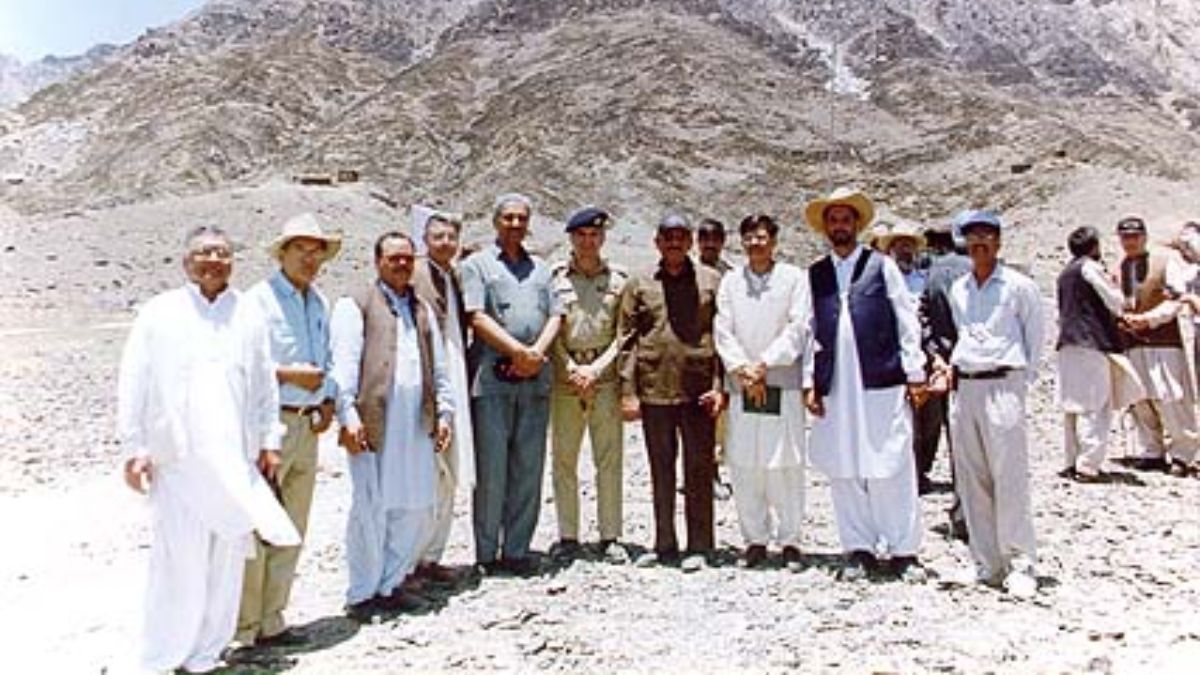Tensions have been simmering between neighbouring countries India and Pakistan since the deadly terrorist attack on Jammu and Kashmir’s Pahalgam on April 22 this year. Several nuclear stations were attacked during Operation Sindoor, India’s retaliation to the attack. While the situation is now back to normal, it is important to remember that both nations are nuclear-armed.
While India tested its nuclear missiles on May 11, 1998, Pakistan followed suit ten days later on May 28, 1998. It conducted five underground detonations in the Ras Koh Hills of Balochistan. With this, it became the seventh country in the world to possess nuclear weapons.
If you are a history geek who loves to learn about important events from the past, Firstpost Explainers’ ongoing series, History Today will be your one-stop destination to explore key events.
On May 28, 1998, Volkswagen was established under Adolf Hitler’s regime in Germany to create a people’s car or Volkswagen. Meanwhile, Amnesty International was also founded on this day in 1961 by British lawyer Peter Benenson.
Here is all that took place on this day across the world.
Pakistan conducted nuclear tests
Pakistan conducted nuclear tests for the first time on May 28, 1998. The Pakistan Atomic Energy Commission (PAEC) carried out these five underground nuclear tests near Balochistan’s Ras Koh Hills.
The tests, codenamed Chagai-I, were a direct response to India’s Pokhran-II nuclear tests on May 11 and May 13 respectively. Pakistan’s decision to test was driven by a desire to restore strategic balance in South Asia and to demonstrate its nuclear capabilities.
While India's Pokhran tests evaded US satellite surveillance, Pakistan’s preparations were monitored in real-time by Western intelligence, reported Economic Times. It further stated that American satellite surveillance detected the pouring of concrete into test shafts 24 hours preceding the detonations. The report further stated that US President Bill Clinton issued a last-minute plea, proposing $5 billion in aid should Pakistan desist from the tests.
According to reports, the devices tested were primarily uranium-based, with yields estimated between nine to 40 kilotons of trinitrotoluene (commonly known as TNT) equivalent. This was followed up with a second test conducted two days later on May 30, 1998, known as Chagai-II in Kharan Desert.
While May 28 is annually celebrated across Pakistan as Youm-e-Takbir (Day of Greatness) to mark the nation’s nuclear advancements, it is viewed differently in Balochistan. Many locals there commemorate the day as a “black day,” pointing to the environmental damage and health problems caused by the nuclear explosions.
Volkswagen was founded
On this day in 1937, the German Labour Front, operating under the Nazi regime, established the “Gesellschaft zur Vorbereitung des Deutschen Volkswagens mbH” (“Company for the Preparation of the German People’s Car Ltd.”) in Berlin. The primary objective of this initiative was to manufacture an affordable automobile for the average German citizen.
To bring to life Adolf Hitler’s vision of a “people’s car” or “Volkswagen”, Ferdinand Porsche was commissioned to design the vehicle. He came up with the KdF-Wagen which later became known as the Volkswagen Beetle. The construction of the Volkswagen factory in 1938 in the town of “Stadt des KdF-Wagens,” later renamed Wolfsburg. However, the outbreak of World War II shifted the company’s focus to military production.
Once the war came to an end, the British took control of the factory and revived the production of the Beetle . The car went on becoming a symbol of Germany’s post-war economic recovery.
Today, Volkswagen has evolved into one of the world’s leading automobile manufacturers.
Amnesty International was founded
On May 28, 1961, the British newspaper ‘The London Observer’ featured on its front page an article by British lawyer Peter Benenson titled “The Forgotten Prisoners.” This publication initiated the Appeal for Amnesty 1961, a campaign advocating for the release of individuals detained globally solely for the peaceful expression of their convictions.
Benenson was inspired to author the appeal after encountering an article detailing the incarceration of two Portuguese students who had publicly offered a toast to freedom. Portugal, at the time, was governed by the dictatorship of Antonio de Oliveira Salazar. Outraged by the situation, Benenson composed the Observer article, presenting a case for the students’ liberation and imploring readers to dispatch letters of protest to the Portuguese government.
The response to the appeal was overwhelming, leading to the formal establishment of Amnesty International in July 1961. The organisation was founded with the support of various individuals, including Quaker activist Eric Baker and Irish statesman Seán MacBride, who became its first chairman, reported History.com.
It was awarded the Nobel Peace Prize in 1977 for its efforts to secure the release of prisoners of conscience and combat human rights abuses worldwide .
This Day, That Year
On this day in 1999, Leonardo da Vinci’s Last Supper was reopened to public view in Milan.
Neville Chamberlain became prime minister of the United Kingdom on this day in 1937.


)

)
)
)
)
)
)
)
)



